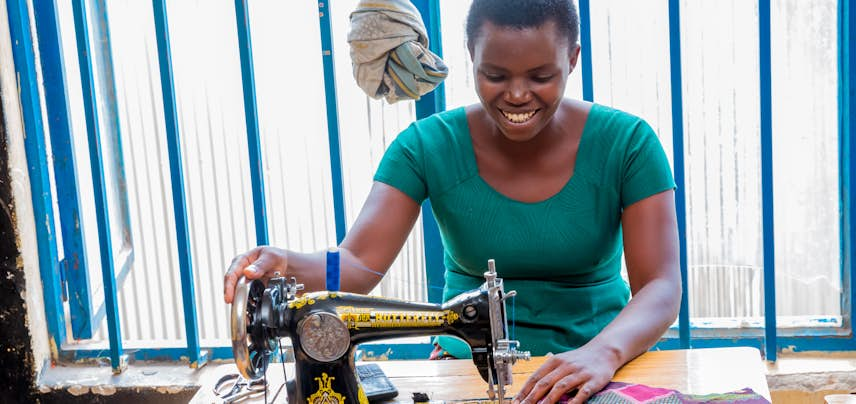Cooperation with the private sector
It is with this in mind that it has become necessary to scale up the collaboration between the actors of Luxembourg Development Cooperation and the private sector, and the formation of a closer relationship between them has been encouraged. This has had the specific aim of identifying innovative solutions developed in Luxembourg and making them available to help achieve development objectives in Luxembourg Development Cooperation’s partner countries. Thus, those involved in Luxembourg Development Cooperation, the private sector in the North as well as in the South and the research world are working together to develop projects and approaches which can demonstrate benefits that earn them a place within bilateral programmes. All the avenues explored in this framework place a central focus on the responsible conduct of companies in relation to human rights and compliance with environmental criteria.
The teams responsible for these areas at the Directorate for Development Cooperation and Humanitarian Affairs, as well as those at LuxDev, were supplemented by additional resources, and 2021 was an opportunity to review a number of current instruments and projects in order to better structure existing and future collaborations with new partners from the private sector. In terms of sectors, information and communication technologies (ICTs) and cybersecurity remain particular focuses, although other areas that promote knowledge transfer and local capacity-building are not neglected.
The Business Partnership Facility (BPF), implemented by LuxDev, is a tool to encourage the Luxembourg and European private sector to engage with partners in developing countries. This partnership approach thus promotes the transfer of technology and expertise as well as job creation in developing countries. The facility targets ICT, fintech, renewable energy, logistics, the circular economy, space, mobility, CleanTech and HealthTech. Four high-quality projects were selected in 2021, taking the number of projects chosen by the BPF to 34 since 2016. A clause on due diligence on human rights has been incorporated into contracts with enterprises. Since autumn 2021, Luxembourg Development Cooperation has been working toward a reformulation of the BPF tool, the new procedures for which will be presented in 2022.
Multilaterally, Luxembourg Development Cooperation has continued its commitment with the Enhanced Integrated Framework (EIF), a multi-donor programme directly linked to the World Trade Organization (WTO). The programme aims to provide specific support to the least developed countries to enable them to play a more active role in the global trade system. Luxembourg’s financial commitment for 2016 – 2022 amounts to EUR 4.5 million, bringing Luxembourg’s total contribution to EUR 9 million.
In March 2021, the Luxembourg government and SES TechCom launched the second phase of the SATMED telemedicine project, which will be extended until 2024. SATMED is a telemedicine platform that uses emergency.lu’s equipment, technology and connectivity and is made available to NGOs and development agencies. The e‑health tool aims to improve public health in developing and emerging countries, specifically in isolated areas without connectivity. It is satellite-enabled and connects doctors and nurses based in remote locations to the outside medical world, providing access to the platform’s cloud-based applications for online training, virtual consultations, medical data management and storage and video-conferencing.
